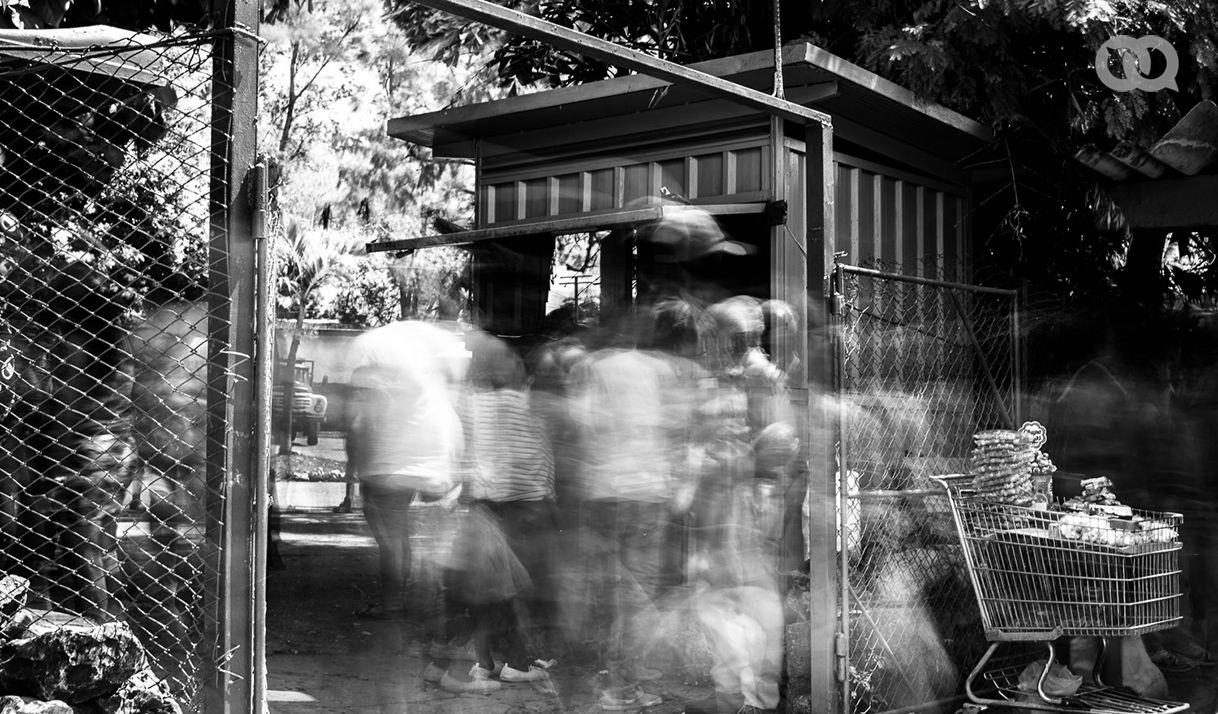Lots of Cubans are like Saint Thomas. They need to stick their finger in the Savior’s wounds and see the dead man come back to life to believe.
Maybe that’s why lots of Cubans didn’t believe in testimonies from opposition members and activists for decades, when they spoke about violent police forces and State Security agents, torture and violations of all kinds of human rights.
However, July 11, 2021 (11J) and the days that followed were a parting of the Red Sea for those who needed to see and believe the Cuban regime’s violent nature. On that day, the Government unintentionally showed skeptic Cubans its true nature and its ability to kill in order to survive.
Yet, for Cubans who had already opened their eyes to reality beforehand or had believed without seeing it, 11J was just a confirmation of this. Confirmation that violence and a lack of respect for anything human and divine was essential to Cuban totalitarianism. Confirmation that the only empire that exists in Cuba belongs to the Communist Party, its bureaucrats, their relatives and repressors.
The reality is that Cubans have lived under a totalitarian State for a long time before 11J, which has sunken them into incivility; which has transformed them into individuals with a frightening level of alienation.
This incivility has been critical for the Cuban political system to remain in power. It allows many Cubans to believe, for example, that it’s right for the Communist Party leader to determine when and who they will punish for acts of corruption or negligence. To also believe that this leader is untouchable and can do no wrong just because they hold this position.
Or that it’s normal and admissible for a police officer to arrest anyone on the street for no reason, frisk them in public, ask for their ID or arrest them or hold them in detention for 24 hours without the need to give a reason. Or even to think it’s not worrying in any way that people using fake names can summon you over the phone to make a compulsory visit to a police station and be interrogated without having committed a crime. An interrogation where you are threatened, but they dress it up like an “interview”.
Totalitarianism had led many Cubans not to ask questions and they normalize the ruling elite’s interference in every aspect of their lives. It has managed to annihilate the citizen able to defend their identity and rights. Rights which many Cubans believe they don’t have because they haven’t been granted them by the Government. Totalitarianism has made them believe that their rights are gifts.
Cubans – who have grown (and grow) under the influence of a State where rule of law does not exist – feel this time and time again. The Law cannot rule where a single political party and ideology exist. Without their rights, Cuban citizens can only bend down or rebel.
Cubans have been kneeling for far too long. They’ve been crushing their own instinct for a long time, so they can bend over and meet the Government’s demands and standards. But this subservience, going hand-in-hand with bread shortages, only further entrenches worthlessness. A person is unable to forever control their instincts and be forced to act like a sheep when their children are suffering. This piled-up indignity leads to a rebellion.
More and more Cubans are rebelling now against the Communist Party’s rule. They are rebelling in their own way and within the limits that their own personal situation and inherited incivility impose.
This is why the speech of an elocuent Cuban is striking, when he asked local leaders of the Communist Party and repressors to let him leave, after seeing how his neighbors were being beaten. Leaving the country is the first and most widespread form of Cuban protest.
In Cepen, a neighborhood near Baracoa Beach, Artemisa, a Cuban who wanted to leave on a raft said that he also didn’t want to stand up to the Government. But I’m sure he did exactly that from the moment he was able to leave the country and say what he really felt. Anyway, an act like this in Cuba is an act of rebellion. That Cuban, who so many others are proud of today, made it clear that he didn’t want to stand up to this Government, in theory, as it was able to repress him to “protect” him from the sea, but unable to protect him and his family from poverty.
This Cuban in Cepen was able to stop bending down and publicly display his dissatisfaction with the administration of some leaders responsible for making sure that him and his family are able to access basic products that are only being sold in stores where you have to pay in a currency Cubans don’t earn their wages in. In his protest, this Cuban recognized that the Government couldn’t protect him from despair. Despair that should be incompatible with his role as a father of a family.
The Cuban Government has been unable to create hope. On the contrary, it is always replacing this with appeals for resistance.
But people need hope in order to resist. Cuban citizens don’t only want to survive, they want to live and try to do what they are passionate about while living a dignified life. However, the Cuban Government has made it perfectly clear that it doesn’t believe in passion. Especially passions that it believes pose a threat to its survival. This is why they force young journalists today, whom have graduated from Cuban universities, to renounce their right: of writing about a reality that is different to the Government’s propaganda’s version. Therefore, the Government is badgering them today to give up their profession in the name of a law that does not exist.
The only thing that exists in Cuba is the judgement of a select few who believe that by breaking down the generations capable of building a Cuban future, they will guarantee the survival of the ruling political class, which has only proven to be efficient when it creates and entrenches their privileges. A political class that direct repressors don’t belong to – no matter how much they believe they do.
Firsthand repressors are there to keep up this alienation and get citizens to kneel down. Firsthand repressors aren’t defending the country against its enemies. Cuba doesn’t have a greater nemesis today than the political class that repressors protect with a violence that is becoming far more widespread and explicit.
We recently saw photos in Cepen (before the eloquent speech made by the frustrated rafter), of an entire police force dragging women and beating them without them being able to defend themselves. Photos of the police who weren’t doing their duty of reestablishing and upholding public order, but were out there to scare people who had decided to take to the sea, just like they had done on 11J.
Foreseeing violence and preventing the use of force should be the guiding principles of dealing with any situation linked to public order. In Cuba, violence seems to be a premise and a license for police officers. The situation in Cepen proved that there were different ways to de-escalate conflict. But it seems that there is only solution for rebelliousness in Cuba: violence. Listening in, encouraging spaces for a sincere and unfiltered exchange, expose the Government a lot more than the physical blows that can always be justified with Cuban citizens’ previous actions.
Shifting the blame for this repression onto Cuban citizens is a part of the Government’s game, so they can guarantee impunity for its repressors. Cubans who comment on excessive police violence that need to ask themselves what happened before the police officer repeatedly beat a handcuffed citizen who didn’t resist, fall into and encourage this game. This hooligan culture can also be overcome with the empathy of victims who haven’t been listened to for so long.
Telling the full story enriches your understanding of what happened, but it shouldn’t be necessary in order to condemn a clearly barbaric act. Nothing justifies violence against someone who isn’t putting up a fight and attacking. If this violence happens beforehand, then this police violence isn’t justice, it’s vengeance.
The Cuban Government doesn’t need to give more displays of what it’s capable of doing. The initial doubts shouldn’t fall upon the victims, but on those who have proven, time and time again, that they are the aggressors. We have seen police officers with infinite repressive methods recently, and thanks to the Internet. Police officers who act as if they can bend the Law to every situation they face.
However barbarian this might seem to you, it’s Cuba’s reality. The Government needs for the law to not exist, for order to be instilled on its own guidelines or, worse yet, by the barbarian police officers. What other way do they have to fight those they say they protect?
This is why the Cuban Government, which has regulated what Cubans can and can’t do to death, has never written up a legal framework to limit police action. There is no law in Cuba that clearly outlines the authority of the police and citizen’s rights against the constant meddling in their private affairs. Although the existence of this law wouldn’t do much in a country where there is no rule of law. Nevertheless, the complete absence of a law like this is also a clear sign that the Cuban Government doesn’t want to place limits on those who guarantee its survival.
These limits are for citizens instead, who ultimately end up suffering and responding at the hands of repressors who are excessive.
A few days ago, the police beat girls at a protest in Nuevitas, Camaguey. There’s been no word about whether these police/perpetrators have suffered any consequences. However, Mayelin Rodriguez Prado, who recorded this repression and complained about law enforcement agencies’ actions, is now in prison and being accused of “corrupting” the girls who were beaten. Alejandro is in a similar situation, who was punched in front of his famiily, and now has formal charges against him for having attacked his aggressor.
Impunity for those who violate human rights and the double repression of victims (physical and legal) is a characteristic of the Cuban Communist Party’s rule. Nevertheless, those doing the dirty work don’t enjoy, and will never enjoy, their privileges.
In the near future, Camilos and Marios might not even be able to protect their aliases. In the social media era, the only protection they have is the impunity the political class they work for grants them. A political class that won’t be in power forever.
Tomorrow, when this impunity vanishes and rule of law is reestablished, repressors will need to face the Cuban people’s skepticism, which has protected them up until now. Even though the rule of law will give them the right to due process, the Cuban people won’t forgive them and they’ll despise them. Skeptic Cubans eager for justice won’t hold by the premise they’re innocent until proven guilty.
Like one of the most distinguished victims of the Communist Party’s rule, Oswaldo Paya, once said: “night won’t go on forever.”
This article was translated into English from the original in Spanish.


If you believe that our journalism is important for Cuba and its people, we want you to know that this is a critical moment.
Behind each publication there is a team that strives to ensure that our products meet high quality standards and adhere to professional and ethical values.
However, to keep a close watch over government, demand transparency, investigate, analyze the problems of our society and make visible the hidden issues on the public agenda is an effort that requires resources.
You can contribute to our mission and that is why today we ask for your help. Select the way you prefer to send us a donation.









comments
We moderate comments on this site. If you want to know more details, read our Privacy Policy
Your email address will not be published. Mandatory fields are marked with *